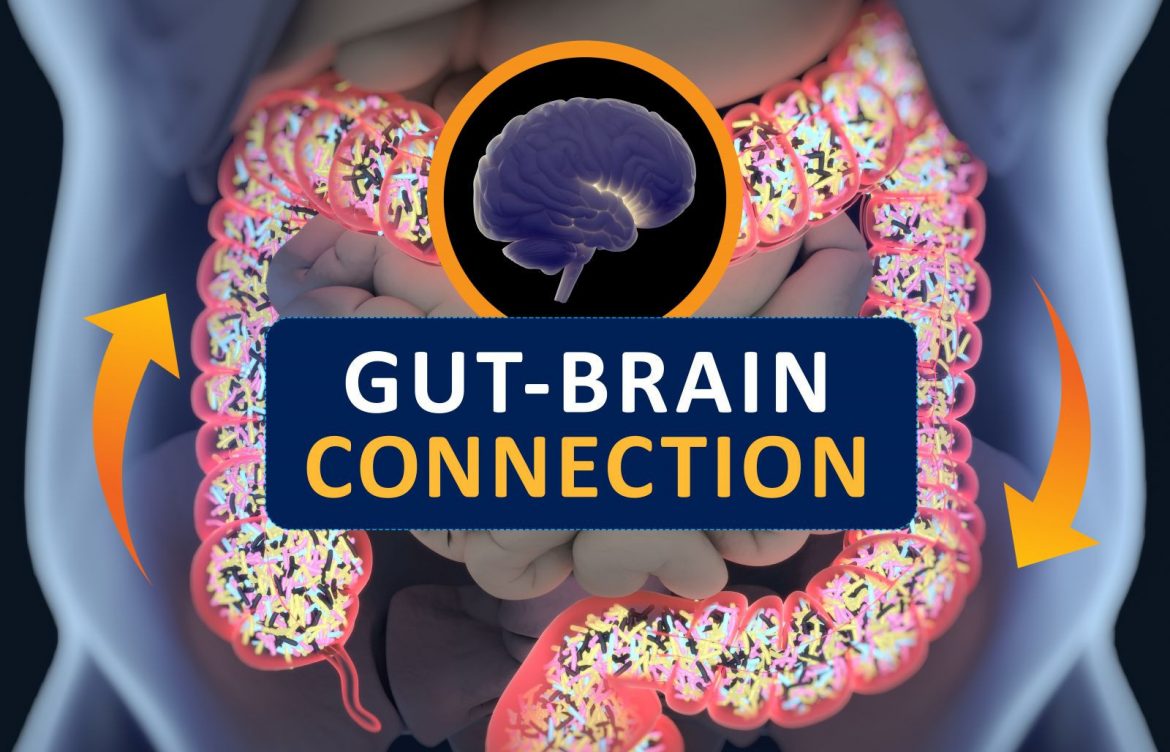
Exploring the Gut-Brain Connection: Enhancing Your Mood and Well-Being

Introduction
The interconnection between the gut and brain has captivated researchers for years. Recent scientific endeavors have uncovered the profound impact that gut health exerts on our mental and emotional well-being. In this comprehensive exploration, we delve into the intricate dynamics of the gut-brain connection, deciphering how these two essential systems communicate and influence each other.
Understanding the Gut-Brain Axis
The gut-brain axis serves as a sophisticated communication network bridging our gastrointestinal (GI) system, comprising the gut, with our central nervous system, housing the brain. This axis not only physically connects these organs but also facilitates intricate biochemical pathways, enabling multifaceted interactions crucial for our overall health and functioning¹.
Unveiling the Vital Link: The Vagus Nerve
Central to the gut-brain axis is the vagus nerve, a sprawling neural pathway that orchestrates bidirectional communication between the gut and brain. Stress, a common phenomenon in modern life, can disrupt the vagus nerve, leading to a cascade of gastrointestinal disturbances. Studies have linked reduced vagal tone to prevalent conditions like irritable bowel syndrome (IBS) and Crohn’s disease².
Deciphering Neurotransmitters: The Brain’s Messengers
Neurotransmitters, intricate chemical messengers synthesized by the brain, play pivotal roles in regulating our emotions and behaviors. Interestingly, many of these neurotransmitters, including serotonin and gamma-aminobutyric acid (GABA), are also produced by the gut cells and the vast ecosystem of microbes dwelling within. Serotonin, often hailed as the “happiness hormone,” influences mood regulation, with a significant portion synthesized in the gut. Disturbances in gut microbiota can profoundly affect serotonin levels, thereby impacting our emotional equilibrium³. GABA, produced by gut microbes, aids in mitigating feelings of fear and anxiety. Research in mice suggests that specific probiotics can enhance GABA production, potentially alleviating symptoms of anxiety and depression⁴.
Influence of Gut Microbes on Brain Chemistry
The trillions of microbes inhabiting our gut form a bustling community that produces an array of chemicals influencing brain function. These chemicals encompass neurotransmitters, hormones, and short-chain fatty acids. Notably, gut microbes are capable of synthesizing neurotransmitters such as dopamine, norepinephrine, and acetylcholine, pivotal for regulating mood, concentration, and motivation⁵.
Dysbiosis: Disruption of Gut Harmony
Dysbiosis marks an imbalance in gut microbiota composition, heralding detrimental consequences for our mental and emotional well-being. The perturbation of gut microbial balance can lead to diminished concentrations of neurotransmitters, thereby impinging on mood regulation, stress responses, and overall mental health. Thus, fostering a harmonious gut environment through prudent nutritional choices and lifestyle practices becomes imperative for nurturing our holistic well-being⁶.
Conclusion
As we navigate the labyrinthine pathways of the gut-brain connection, the significance of gut health in shaping our mental and emotional landscapes becomes increasingly evident. By embracing practices that promote the flourishing of our gut microbiota, such as integrating probiotics, fiber-rich foods, and a well-rounded diet into our daily regimen, we embark on a journey toward enhanced physical, emotional, and cognitive vitality.
The next time you perceive those fluttering sensations in your stomach, recognize that it’s not merely a metaphorical expression—it signifies the tangible interplay between your gut and brain, a symbiotic relationship pivotal for holistic wellness.
If you want to read more information about Gut-BRain connection click here